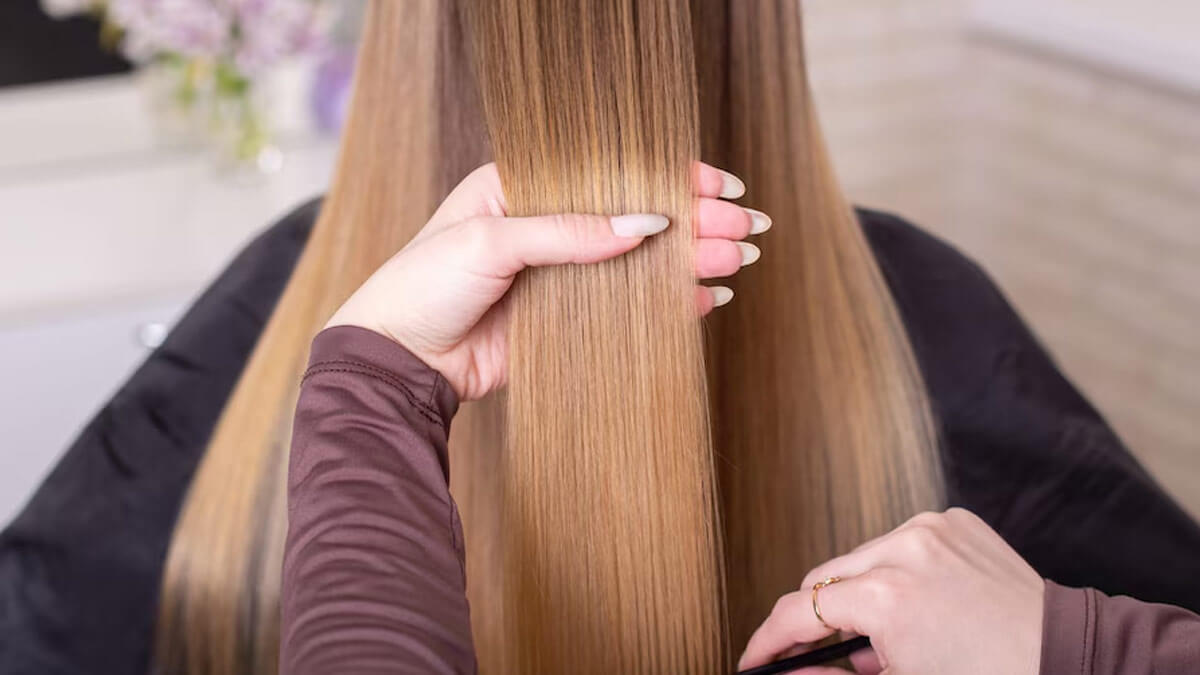Experts explain how hair straightening treatment can damage kidneys
Tue 27 Aug 2024, 01:07:36

Well, who doesn't love their hair smooth and shiny? People nowadays are opting for various hair treatments. Novel hair treatments have become a mainstay in the beauty industry. Traditionally, straightening involved the use of formalin (Brazilian blowout), which was declared a health hazard for both the recipient and the treatment provider. This led to the emergence of alternatives like Glycolic Acid. Salon hair straightening treatments often use Keratin to achieve silky straight hair. However, there is growing evidence that such products may cause Kidney damage.
A recent report from Israel highlighted the severe impact this hair-straightening chemical (Glycolic Acid) can have on the Kidneys. Between 2019 and 2022, 26 cases of Acute Kidney Injury (with two cases being recurrent) were reported from 14 centres. All affected individuals were females in their 20s, and the Kidney disease was so severe that three patients required Dialysis. Additionally, a study published in The New England Journal of Medicine (NEJM) suggested that Keratin-based hair straightening products containing Glyoxylic Acid increase the risk of Acute Kidney Injury (AKI) due to the formation of oxalate crystals
in the Kidneys.
in the Kidneys.
How does hair straightening treatment cause kidney damage?
When we spoke to Dr Vaibhav Keskar, Consultant Nephrology, Fortis Hospital & Dr Abhishek Shirkande, Consultant Nephrologist & Kidney Transplant Physician, S L Raheja Hospital, they said that the compound Glyoxylic Acid passes through the epidermis and is systematically absorbed in blood bloodstream where it is rapidly converted to Glyoxylate. Glyoxylate finally metabolises oxalate, which is toxic to the Kidneys. Using Glyoxylic Acid for hair straightening leads to the deposition of Calcium Oxalate in the Kidney tissue, and Kidneys cannot function properly.
When severe, this condition may require Dialysis. At times, the injury may result in permanent loss of Kidney function. Local burning/ itching sensation or Ulcers after the treatment could be an early sign, which should not be ignored. Early detection and timely treatment may help decrease the risk.
So, it is advisable to exercise caution when opting for Keratin-based treatments. These treatments should be used sparingly and according to the manufacturer’s instructions.
No Comments For This Post, Be first to write a Comment.
Most viewed from Health
AIMIM News
Latest Urdu News
Most Viewed
May 26, 2020
Do you think Canada-India relations will improve under New PM Mark Carney?
Latest Videos View All
Like Us
Home
About Us
Advertise With Us
All Polls
Epaper Archives
Privacy Policy
Contact Us
Download Etemaad App
© 2025 Etemaad Daily News, All Rights Reserved.






























